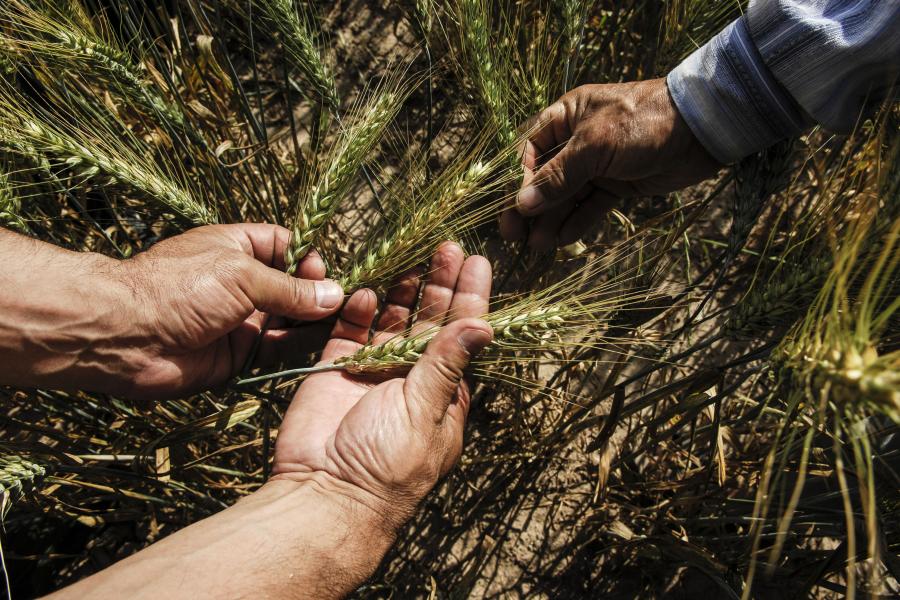FAO scales up wheat seed farm sustainability in Tajikistan through fertilizer, irrigation and pest management trainings
12 March 2025
12 March 2025, Dushanbe - Wheat constitutes a staple crop in Tajikistan, playing a crucial role in the country’s food security and agriculture sector. Improving wheat production through better farming practices and resource management is vital for strengthening the nation's agricultural resilience and ensuring sustainable food production for its growing population.

The Food and Agriculture Organization (FAO) concluded a series of on-the-job training (OTJ) programmes on fertilizer, irrigation, and pest management techniques for wheat seed farms in the Sughd and Khatlon regions, and the Districts of Republican Subordination of Tajikistan. The OTJ took place in January and February 2025 as part of the “Strengthening Resilience of the Agriculture Sector” project, which is funded by the World Bank.
This crucial training programme was designed to enhance farmers' knowledge and practical skills regarding the efficient use of plant nutrients and fertilizers, effective and reliable pest control solutions, as well as water irrigation systems in wheat seed cultivation, all aiming to boost crop yields, improve soil health, optimize water usage, and cultivate a profound understanding of how to adapt to changing climatic conditions, thereby ensuring the enhancement of the overall quality of wheat production.
“By equipping farmers with the skills, knowledge, and tools they need, FAO is empowering agricultural communities to thrive in the face of environmental challenges and market shifts, thereby laying the foundation for a sustainable and resilient future in farming,” emphasized Aghasi Harutyunyan, FAO Representative a.i. in Tajikistan.
Farmers from various districts in the Sughd and Khatlon regions, along with those in the Districts of Republican Subordination, gained valuable hands-on experience and theoretical knowledge during the trainings.
“The training was incredibly valuable. The hands-on workshop and expert-led session gave us a deeper understanding of how to apply fertilizers effectively, use modern irrigation techniques, better pest control and adopt sustainable farming practices. These new skills will help us not only improve the productivity of our wheat farms but also ensure they remain resilient in the face of challenges like drought,” said Qobiljon Shokirov, an agronomist of the seed farm D. Isoyev, Konibodom district, Sughd province.
This training was part of the larger “Strengthening Resilience of the Agriculture Sector” project, implemented in collaboration with the State Institution “Agriculture Entrepreneurship Development” Project Management Unit, focused on improving food security and strengthening the resilience of agriculture systems in Tajikistan by promoting sustainable and climate-smart farming practices.
In 2025, the Food and Agriculture Organization of the United Nations (FAO) proudly celebrates its 80th anniversary, a milestone that signifies eight decades of unwavering commitment to ensuring global food security and combating hunger. Since its establishment in 1945, FAO has been at the forefront of efforts to ensure that people around the world have access to sufficient, nutritious, and safe food. Over the years, FAO has played a pivotal role in providing technical expertise, policy advice, and resources to help countries improve agricultural productivity, strengthen food systems, and address the challenges of poverty and malnutrition.

